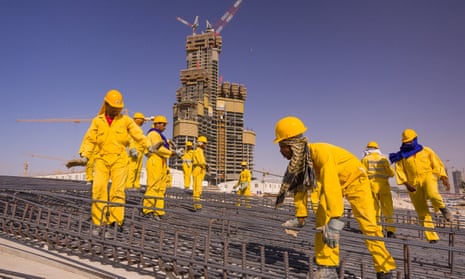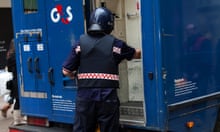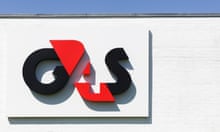Norway’s sovereign wealth fund has blacklisted shares in British security company G4S because of the risk of human rights violations against its workforce in Qatar and the United Arab Emirates.
Norway’s Council of Ethics, which monitors investments in the country’s £860bn Government Pension Fund Global (GPFG), said there was an “unacceptable risk of the company contributing to systematic human rights violations”. Up to 30,000 staff, mostly working in security and construction, could be affected.
The council said it had not officially considered whether G4S had used forced labour – a form of modern slavery – but it said “the company’s practice – in the worse cases – could place workers under constraint”.
At the end of 2018, the GPFG owned 2.33% of G4S’s shares, worth around £66m, but has since sold most of them.
G4S, which is listed on the FTSE 250, provides security services in more than 90 countries. The Council of Ethics focused on its “extensive use” of migrant workers from India, Pakistan and Nepal for contracts across the Middle East.
The company is one of the world’s largest private employers, with 570,000 staff in 90 countries. It earns about a fifth of its revenues from governments.
The council said G4S was aware of the issues but had not done enough to stop alleged abuses. It said many of G4S’s 18,000 migrant workers in Qatar and the Emirates could be affected, as well as another 11,100 people employed in Saudi Arabia, which has a similarly restrictive labour practices.
The wealth fund said many workers had their passports taken from them and were paid less than agreed. Interviews with G4S workers found that some had to take out loans in order to pay fees of as much as $1,800 (£1,400) to get their jobs, and were then paid salaries between $130 and $170 a month. They were often unable to quit as a result of “debt bondage”.
The council said its investigations showed “that workers have paid recruitment fees to work for the company, and that workers have taken out loans in their home country to be able to pay the fees. When the workers arrive in the Gulf, they must spend a significant part of their salary to pay off this debt, and therefore have little chance of leaving.
“Many also received far lower wages than agreed, and in the Emirates, the workers got their passport confiscated.”
The investigation also revealed long working days, a lack of overtime payment and harassment, including threats to sack workers, dock their wages or deport them.
Norway’s sovereign wealth fund blocks investment in more than 150 global companies, mainly on environmental or other ethical concerns. Other companies blacklisted include those involved in nuclear weapons manufacture, such as BAE Systemsand tobacco companies like Altria and British American Tobacco.
Only 12 other companies are banned on human rights concerns, and none of them are listed on either US or westernEuropean stock markets. The other 12 include a number of Far East shipping lines, a Taiwanese shipbreaker, and a Polish property developer.
Vaidehee Sachdev, a senior research manager at ShareAction, said: “This is an unprecedented move by one of the world’s largest pension funds. More than just a slap on the wrist, this signals to G4S and the wider market that the absolute protection of workers’ rights is non-negotiable.
“The question now is what are our pension funds and asset managers in the UK going to do? They should have this as a top priority in their engagements with G4S management.”
Invesco, a US investor with significant London operations, is the largest shareholder in G4S, followed by US firm Harris Associates and London-based fund managers Mondrian and Schroders.
G4S said in a statement it agreed that migrant workers deserved to be treated with dignity and respect, and said it had hired a migrant worker coordinator to address the issues raised by the council.
A spokeswoman said: “We carried out a robust investigation into the issues raised by the Council on Ethics into G4S’s employment practices in Qatar and the UAE. We are making good progress on our action plan to reinforce our high standards in relation to employee recruitment and welfare provisions in the Middle East.”









